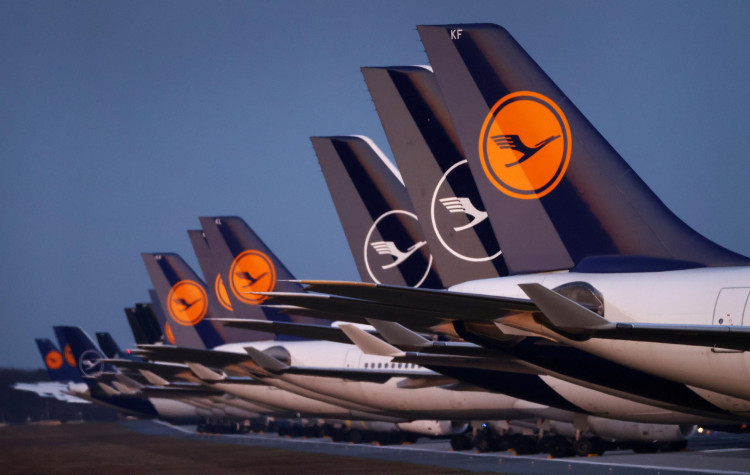Lufthansa announced it was permanently pulling out some of its aircraft from service and decreasing long-term availability, adding it would take years for the market for air travel to return to levels seen prior to the pandemic.
In a statement Tuesday, the German airline group said it was retiring six Airbus A-380s, five Boeing 747-400s and seven Airbus A340-600, a change that anticipates less long-term traffic at its hubs in Frankfurt and Munich.
As a result of lack of demand for aircraft of late, Lufthansa was unable to specify what would happen to the aircraft, but it was clear that they would not hit the skies for Lufthansa again.
The group, which also owns Austrian Airlines, Swiss and Eurowings brands, said the pandemic had forced Lufthansa to take drastic measures towards restructuring. In late afternoon, Lufthansa's shares were up 1.1 percent.
Based on this assessment, the Executive Board on Tuesday agreed on comprehensive steps to minimize flight operations and long-term administration power.
Flight bans and regional lockouts are posing threats of bankruptcy to airlines worldwide. Airlines have grounded thousands of aircraft, with short-term flight plans scrapped and unpaid leave imposed to the workforce.
Operations at Germanwings, Lufthansa's budget airline, will be also be stopped. Fleet sizes at Lufthansa Cityline, a regional carrier operating services to tourist destinations, as well as Austrian Airlines and Brussels Airlines, will also be significantly cut.
In an open letter to Lufthansa bosses on Monday, German unions representing cabin and cockpit crew had pleaded not to "sacrifice" the Germanwings unit based in Cologne, which employs some 1,400 workers, urging a group-wide solution to the current problem.
Lufthansa said it would arrange talks with worker councils to discuss new employment models in order to keep as many employees as possible.
The German airline already disclosed last week that it would put 87,000 staff - over 60 percent of its total workforce - on state-assisted program for reduced work hours, mainly for German personnel.
Roughly 700 of Lufthansa's planes are currently parked as a result of the ongoing global crisis, and their seat availability is only 5 percent of their normal schedule.
Global airlines said Tuesday that 25 million jobs worldwide could be at risk from the decline caused by the coronavirus in travel and IATA, the industry's representative body, said airline finances were so precarious that they could not afford to refund passengers for cancelled flights.
Lufthansa chief executive Carsten Spohr warned in March that the longer the crisis drags on, the more likely that the future of air travel cannot be guaranteed without government bailout.






